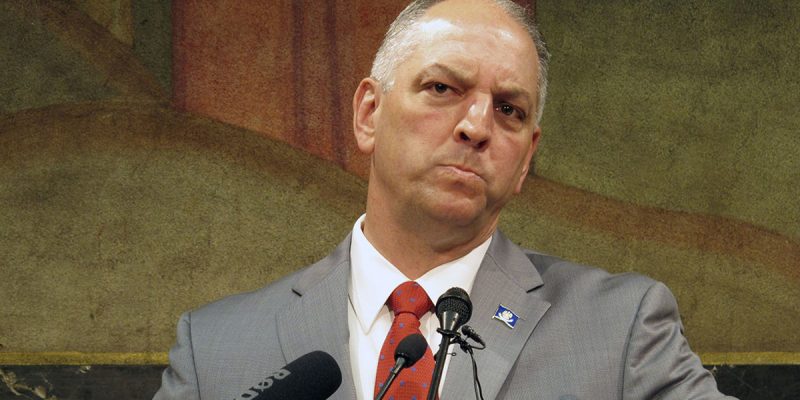Would the Governor and LSU use Voodoo Economics to deceive legislators and the public? The Pelican Institute apparently thinks so. If they are right, one of the Governor’s biggest claims is built on shifting sand. Perhaps the Legislative Auditor should review this and give his opinion to the Legislature.
“Pelican Institute Senior Fellow Chris Jacobs: LSU, Department of Health inflate claims in Medicaid expansion studies”
In part two of a three-part series about the misconceptions of Louisiana’s Medicaid expansion program, Pelican Institute Senior Fellow Chris Jacobs’ authored an editorial published in the Houma Courier detailing the inflated claims made by LSU and the Louisiana Department of Health (LDH) in last year’s Medicaid expansion study. While some leaders tout the expansion as a win for Louisiana, the facts show that it continues to cost you and the rest of Louisiana’s hard-working taxpayers jobs and opportunity.
Advertisement
As part of its “Jobs and Opportunity Agenda for Louisiana,” the Pelican Institute issued a deep dive policy paper offering solutions to fix the Pelican State’s broken Medicaid system. Over the last several years, Louisiana’s Medicaid program has grown by leaps and bounds, expanding the program to roughly 450,000 able-bodied adults over the last two years and fundamentally hurting the individuals Medicaid was primarily designed to help. Reforming Medicaid should involve re-orienting the program’s focus on the vulnerable populations for which it was originally designed, while modernizing the delivery of care in ways that can lower costs and improve health outcomes for patients.
Read Jacobs’ editorial in its entirety below:
In the coming days, the Louisiana Department of Health will release a study conducted by LSU researchers claiming that Medicaid expansion created tens of thousands of jobs in Louisiana. The study’s underlying premise, that higher taxes and government spending will create economic growth, has rightfully raised questions among free market and conservative circles in the state. But, before they release this year’s study, both the Department and LSU face an even more fundamental problem: Last year’s version of this report made inflated claims.
Last month, a similar study covering the potential impacts of Medicaid expansion in North Carolina highlighted the problems with the LSU report. In calculating the federal dollars attributable to Medicaid expansion, the North Carolina researchers “subtract[ed] the federal tax credits that otherwise would have been paid for individuals with incomes between 100% and 138% of poverty for” coverage on the health insurance Exchange.
After months of public records requests by the Pelican Institute, the LSU researchers acknowledged that—unlike their counterparts on the North Carolina study—they did not subtract these foregone Exchange subsidies when calculating the “net new federal dollars” attributable to Medicaid expansion. The university stated that while the researchers “indicated the desire to analyze other data” regarding Exchange subsidies, they ultimately “did not do so.”
Because the researchers did not subtract the federal Exchange subsidies forfeited by new Medicaid recipients, they inflated the “net new federal dollars” attributable to expansion. Additionally, the study inflated the jobs supposedly associated with Medicaid expansion by a sizable amount.
According to the federal Centers for Medicare and Medicaid Services, subsidized enrollment on Louisiana’s Exchange fell by nearly half, from 170,806 in March 2016 to 93,865 in March 2018. Fully, 96.5 percent of that decline came from the narrow sliver of the population that now qualifies for expansion, because these individuals moved from the Exchange to Medicaid. Multiplying these tens of thousands of individuals by the average Exchange subsidy provided to them means last year’s study overstated the “net new federal dollars” attributable to expansion by hundreds of millions of dollars, and thousands of jobs.
Taken at face value, LSU’s response means the researchers inflated the study’s claims — they intended to examine the CMS data but did not do so, ignoring a data source that would reduce their study’s results. Even a more benign interpretation, in which the researchers did not know about the CMS data when they originally drafted their report, does not explain the professors’ continued silence on this matter.
On three separate occasions, the Pelican Institute specifically asked the researchers to retract the flawed study. On each occasion, the researchers failed to acknowledge the request.
The Pelican Institute also pointed out the flaws in last year’s study to LDH. According to the public records requests, the lead LSU researcher sent Secretary Rebekah Gee and Medicaid Director Jen Steele a copy of the Pelican Institute’s rebuttal — which prominently noted its inaccuracy — on April 25, 2018.
As individuals responsible for a $12 billion Medicaid program, both Secretary Gee and Ms. Steele undoubtedly know that federal law made individuals who qualified for Medicaid expansion ineligible for Exchange subsidies once expansion took effect. Therefore, they should also know that, by failing to subtract the foregone Exchange subsidies in its calculations, the study inflated the impact of Medicaid expansion. Despite these facts, LDH is spending even more taxpayer dollars to produce a predictably flawed follow-up report.
With so much conflicting information circulating around Medicaid expansion, the people of Louisiana deserve the truth, not more inflated claims from flawed studies. Coming on the heels of stories about Medicaid recipients with six-figure incomes and tens of thousands of individuals dropping private insurance to enroll in expansion, this study is the latest instance of LDH failing to disclose important facts to the public. Lawmakers should increase their oversight of the Medicaid program, and taking a close look at this study is a good place to start.
Advertisement
Advertisement

